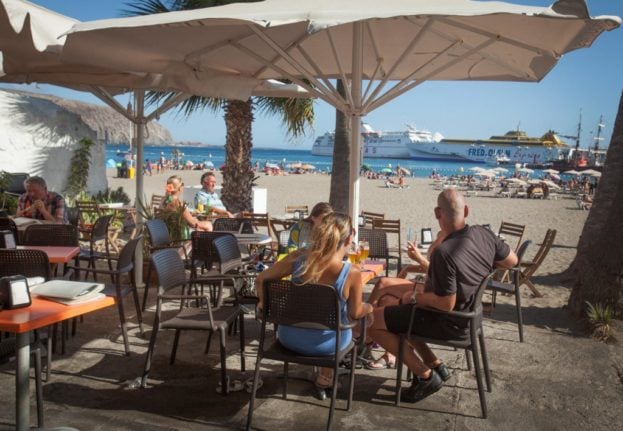Spanish police investigators, through the Immigration Office of Santa Cruz de Tenerife, have discovered the possible existence of fraud in some post-Brexit residence applications.
After carrying out the necessary checks, they found that at least four residency application requests had been made using false documents which claimed their registration at their local town halls (padrón) were prior to Brexit coming into force.
British citizens wanting to apply for residency after Brexit and be protected under the Withdrawal Agreement (WA) have to prove they were living in Spain before the end of 2020 through documents such as their padrón certificate or private medical insurance.
READ ALSO: 16 things you should know about Spain’s padrón town hall registration
The four British nationals in question are based in the southern part of the Canary Island of Tenerife and one of them, who was on the island at the time of investigation, has been arrested. The investigation is ongoing and new arrests haven’t been ruled out.
This is not the first time that fake applications and falsified documents have been used by British citizens to try and gain Spanish residency after Brexit.
Having WA protected status makes the residency application simpler and grants more rights than for Brits applying after Brexit as non-EU nationals, as they don’t have to prove a large amount of savings and they can apply for jobs in the same way as EU nationals, among many other advantages.
In November 2021, the UK Embassy warned UK Nationals against submitting fraudulent residency applications – either directly or through a third party.
“They are particularly on the alert for forged healthcare insurance, padrón certificates and lease contracts, as well as people falsely claiming student status,” the embassy wrote on their Facebook page.
There were also reports of fraudulent gestores (similar to lawyers) in Spain targeting non-EU citizens ‘to help’ with residence applications.
Since Brexit came into force in 2021, the main reasons why UK nationals’ residency applications have been rejected have come as a result of them not ‘regularising’ their situation in Spain, in other words registering at the town hall or immigration office, as well not being able to prove that they were living in the country before the end of 2020 when the UK left the EU.
READ ALSO:




 Please whitelist us to continue reading.
Please whitelist us to continue reading.
Member comments